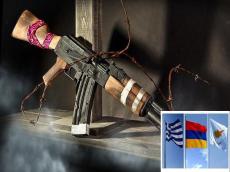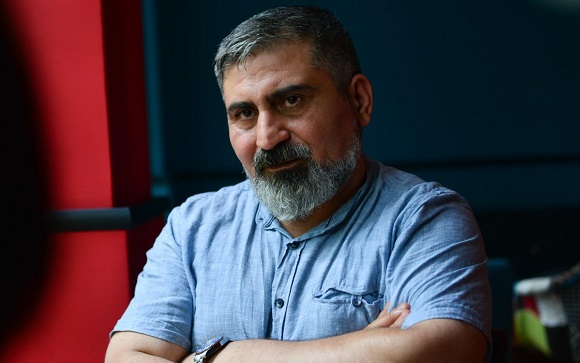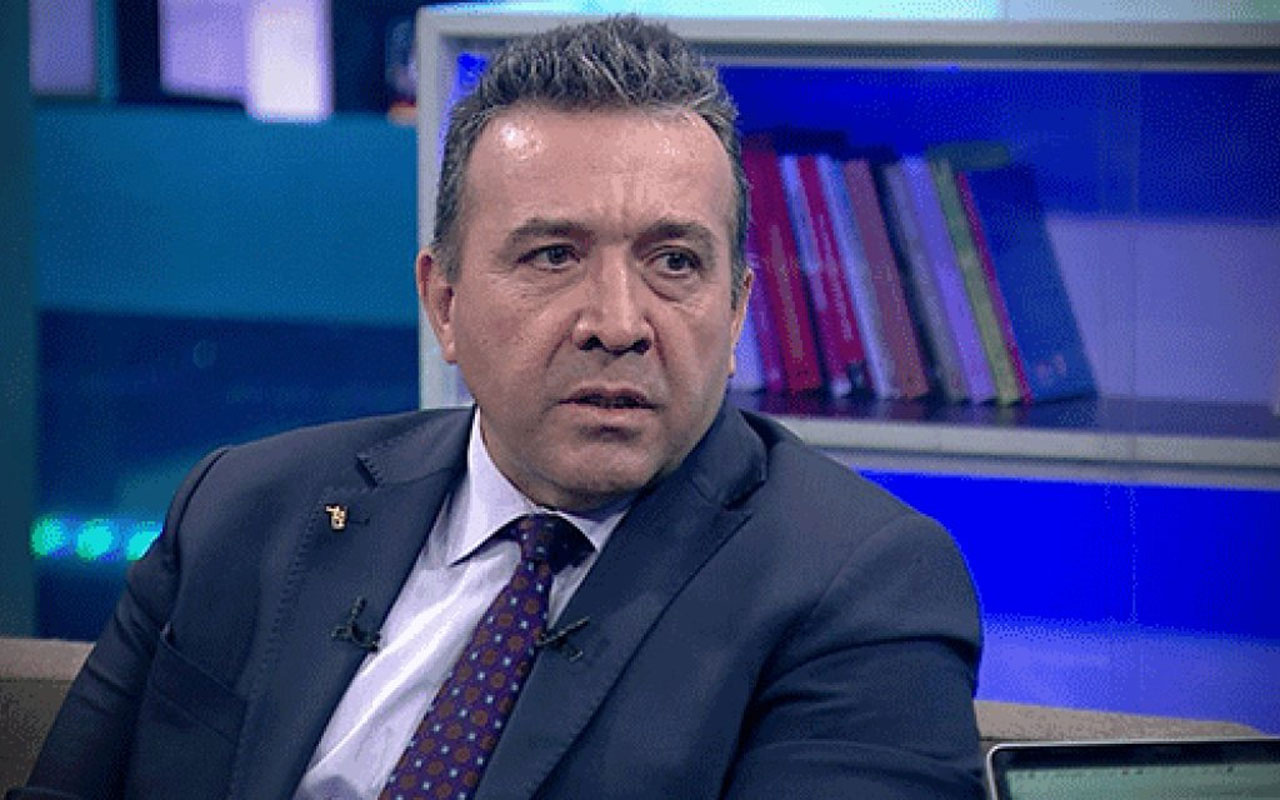|
|
TODAY.AZ / Politics
Boomerang effect of Greece, Armenia arms deal: blames Russian weapons, gets them again
07 July 2023 [08:30] - TODAY.AZ
 By Azernews
By AzernewsThe more Russia mires into the Ukrainian crisis, the more Armenia reveals its long-hidden intention - to get away from Russia as far as possible. It is well known that Armenia owes everything that it has today to Russia and its predecessors, but whenever Russia falters Armenians are the first nation trying to get rid of it. So, as is said history repeats itself. Since the time leading up to the collapse of the USSR, Armenia has tried to go out of Russian orbit. Recall that Armenia was one of the six former Soviet Republics that voted against the USSR on the eve of its downfall, in the 1980s. However, due to its expansionist foreign policy Armenia was obliged to swallow its pride, stepped back, and became the strategic ally of its 'founder'. At the same time, they have never stopped to cooperate covertly against Russia. With the launch of the Ukrainian crisis, Armenia was endared to stab back its strategic ally last time. Besides, the initiation of the Ukrainian crisis emboldened Armenia to find new allies for pushing Russia out of the Caucasus. It invited Iran, India, and France to the region respectively. The last such invitation was made for Greece and Southern Cyprus.
The mass media in Armenia speak about the tripartite military cooperation and brag it. However, any possible cooperation among the said countries raises questions. Because, Greece and Southern Cyprus are members of the EU and the former is also a member of NATO - the Russian arch-enemy. Besides, Greece is also eager to cooperate with Azerbaijan in the field of economy and natural gas. However, the most important question is what benefits Armenia will get from debt-ridden Greece.

Speaking to Azernews on the issue, Elchin Alioghlu noted that being NATO member is not obstacle to cooperate with Armenia, because none of the NATO members have made any commitment to conduct their foreign policy in a centralized manner within the organization - the Northern Alliance. There is no such word about this in either in the Luxembourg or London agreements.
“As for the activity of Greece in the South Caucasus, it has many goals here. Recall that during the presentation of the credentials of the new ambassador of Greece in Baku, the President of Azerbaijan stated that Azerbaijan will always take steps with Turkiye in the Mediterranean Sea, especially on the eastern shores of the Mediterranean Sea, and in generally in the world political arena. Azerbaijan will take exactly one steps, neither parallel, nor coordinated. This means that whatever position Turkiye takes in the current period of tension in Turkiye-Greece relations, Azerbaijan will automatically take the same position. Because we have alliance and strategic partnership agreements with Turkiye in geopolitical, military and other issues. This is not surprising,” Alioghlu said.
He also touched on the Greece's support to Armenia, and said that it has historical roots. He recalled that when the Greek troops occupied the western provinces of Turkiye during the WWI, they necessarily relied on and used the local Armenian communities. Even Armenians performed the functions of proxy forces and paramilitary units of Greece at that time.
“To put it more simply, the local civilian population inflicted reprisals. Before the Second World War, Armenians living in Western countries had massively joined the Greek paramilitary units bearing Nazi idology. The same situation was observed during the Second World War. After the junta of black colonels came to power in Greece, the street police functions of that junta were performed by Armenians living in the country.
After the collapse of the USSR, Armenia gained so-called independence. Why so-called? Because Armenia became de facto independent, it was never de-jure independent. Greece's goal now, based on those historical traditions and emotional ties, is to use Armenia in the region as a means of influencing Azerbaijan, Turkiye, Russia, and the West at the same time,” he opined.
Regarding to the Southern Cyprus, Elchin Alioghlu pointed out that Greek Cypriots are in the same boat with Armenia to look through the relations with the Turkish Republic of Northern Cyprus and to put pressure on both TRNC and Ankara. He mentioned that during the 44-day war, representatives of the Armenian community from both Greece and South Cyprus fought against Azerbaijan as mercenaries. They consisted of about 162 people, and 154 of them were killed, 8 were injured, and after being treated in Armenia, injured ones were evacuated to Greece.
“I do not think that Greek-Armenian relations are likely to turn into any serious military-technical cooperation. It is not possible. This is just a show of force (by Greece) against Azerbaijan, and for Armenia, it is the creation of a kind of security umbrella with the active involvement of Greece and Southern Cyprus in order to ensure its security,” he opined.
As is known Armenia related its defeat in the 44-day war to Russian-made weapons and frequently voices to find new arm supplier. Responding the question whether Greece can arm Armenia, he called it illusion. He reminded that Armenia is a member of Russian lead organizations, therefore Greek will not do it.
“Greece cannot arm Armenia. This is an illusion. It is not possible. Because Armenia is a member of the CSTO within the CIS and has close relations with Russia. Greece is not allowed to provide lethal weapons to Armenia. This is also related to the fringe agreement on the limitation of conventional arms in Europe. It clearly shows how many armored vehicles, firearms and etcetera weapons Armenia can have. So it's just an image, a demonstration of muscle,” he added.

However, Turkish military expert Abdullah Agar commented on the Armenians' complaint about the quality of Russian weapons and said that this is simply due to their incompetence. He believes that Russian weapons are too dangerous to be underestimated, and it is the fault of Armenians who could not use them properly.
“We must not take Armenia’s words seriously over the Second Karabakh War. It got enough Russian weapons and used them very well. They were not able to use effectively due to lack of personnel training.
In addition, to some extent, it could not obtain the desired efficiency from the Russian weapons. I know very well how powerful Russian weapons are. The important thing is to be able to use them effectively and properly. Here they should blame not only Russia, but also themselves.
But are the Russian weapons insufficient in some technical issues? Yes. We saw this in the Ukrainian war as well. There were some technical problems in comparison with Western weapons. However, underestimating Russian weapons does not mean correct judgment. As for the question, whether Greece can give weapons to Armenia? It is possible. But Greece will not do it of its own free will. Currently, Greece is sending Russian made weapons to Ukraine. Can it send some of them to Armenia (instead of Ukraine)? Yes, it can,” he affirmed.
He also noted that he does not think Greece cooperated with Armenia despite NATO and the USA. After all, when we look at the big picture, no matter how big the fight is between them, the USA, France and Russia are in a trend of supporting Armenia in some way. Recently, we can see that some problems have developed between Russia and Armenia, especially in the Ukraine and the Garabagh wars. But this does not mean that these ties have been severed and that Armenia does not receive support from Russia. After all, Armenia can see cooperation with EU countries as part of the big picture, very appropriately.
“The common features of Greece, Southern Cyprus and Armenia are enmity towards Türkiye and Azerbaijan. Secondly, these three structures have undertaken a mission in the historical process. This mission consists of destabilizing the Turkish homeland. With their similar historical memorizations and today's motivations, they are again in a cooperative rectification action. One of the most obvious features is that they have the same Christian denomination. Let us remind you that this is why they are close with Russia,” he concluded.
URL: http://www.today.az/news/politics/236792.html
 Print version
Print version
Connect with us. Get latest news and updates.
See Also
- 14 February 2026 [17:00]
Armenia’s Security Council Secretary Meets Azerbaijani Civil Society Delegation - 14 February 2026 [14:00]
President Ilham Aliyev meets with President of Bulgaria in Munich [PHOTOS] - 14 February 2026 [13:28]
President Ilham Aliyev meets with chairman of Bundestag's foreign policy committee in Munich [PHOTOS] - 14 February 2026 [08:30]
President Aliyev in Munich: peace, power and new Caucasus reality - 14 February 2026 [01:55]
Azerbaijan’s president calls for calm in relations with France - 14 February 2026 [01:37]
President Aliyev: Sentenced separatist leaders were “masterminds of war crimes” - 14 February 2026 [01:27]
President Ilham Aliyev gives interview to France 24 in Munich [PHOTOS/VIDEO] - 14 February 2026 [00:19]
Azerbaijan becomes Washington’s sole strategic ally in Eurasia - 12 February 2026 [14:14]
Baku and Washington have passed a verdict on the 907th Amendment - 12 February 2026 [11:11]
Rhymes won't help!
Most Popular
 SOCAR discusses joint energy projects with US companies and Israeli cooperation
SOCAR discusses joint energy projects with US companies and Israeli cooperation
 Russia to begin talks with Armenia on restoring railway links connecting Azerbaijan, Türkiye and Iran
Russia to begin talks with Armenia on restoring railway links connecting Azerbaijan, Türkiye and Iran
 President Ilham Aliyev gives interview to France 24 in Munich [PHOTOS/VIDEO]
President Ilham Aliyev gives interview to France 24 in Munich [PHOTOS/VIDEO]
 Nurda?–Kahramanmara? high-speed rail link to boost regional trade
Nurda?–Kahramanmara? high-speed rail link to boost regional trade
 Georgia to restrict older car imports
Georgia to restrict older car imports
 Iranian foreign minister removed from UN Human Rights Council speakers list
Iranian foreign minister removed from UN Human Rights Council speakers list
 Kahramanmara? rebuilds after earthquake of century
Kahramanmara? rebuilds after earthquake of century
